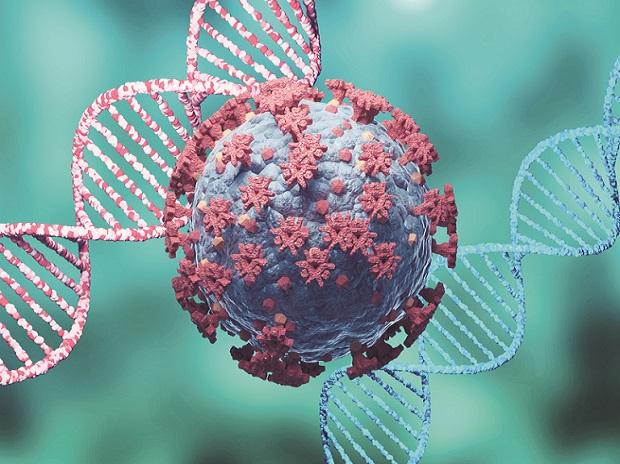Finally! Documented Case Of How Antibody Drugs Bamlanivimab And Etesevimab Are Creating Resistant Mutations Like Q493R In SARS-CoV-2
Source: SARS-CoV-2 Mutations- Aug 02, 2021 4 years, 6 months, 1 week, 6 days, 23 hours, 5 minutes ago
Despite constant warnings by Thailand Medical News for researchers and doctors to abandon antibody based treatment protocols to treat COVID-19 as they are driving mutations regarding resistance and immune evasion, little has been done to stop these protocols.

Instead Thailand Medical News has always been advocating a combination of antiviral therapeutic agents to be used to not only inhibit the SARS-CoV-2 coronavirus but also to deal with the various emerging medical conditions arising as a result of the viral proteins causing a wide range of disruptions in various human host cellular pathways.
Italian researchers have finally documented a case involving how monoclonal antibody treatments were driving the emergence of a concerning mutation ie
Q493R in the SARS-CoV-2 virus .
Fortunately under pressure, the U.S.CDC was forced to publish the report sent to them as a report/letter in the CDC’s journal:
Emerging Infectious Diseases.
https://wwwnc.cdc.gov/eid/article/27/10/21-1538_article
The Italian researchers reported the in vivo selection of a severe acute respiratory syndrome coronavirus 2 spike mutations (Q493R) conferring simultaneous resistance to bamlanivimab and etesivimab. This mutation was isolated from a patient who had coronavirus disease and was treated with these drugs.
The documented report detailed a case of severe acute respiratory syndrome coronavirus 2 (SARS-CoV-2) in an immunocompromised patient who did not respond well to monoclonal antibody treatment. The resistance to treatment stemmed from an escape mutation on the spike protein known as Q4923R.
Alarmingly the Q4923R mutation emerged from selective pressure from bamlanivimab and etesevimab treatment. It can increase the binding affinity between SARS-CoV-2 and ACE2.
At present, the Q494R/K is the only mutation that causes resistance to bamlanivimab and etesevimab. It also confers resistance against class 3 monoclonal antibodies “that do not overlap with the angiotensin-converting enzyme 2 (ACE2) binding site and have accessibility to the receptor-binding domain epitope in the up and down conformations.”
The study team strongly recommends genomic surveillance of SARS-CoV-2 variants for patients who respond poorly to spike protein monoclonal antibodies. More research is also needed to identify other escape mutations that may emerge after treatment.
The case report detailed severe COVID-19 infection in an immunocompromised patient.
It was reported that on April 12, 2021, a 73-year-old with cholangiocarcinoma was admitted to a hospital in Italy after developing sepsis during one of his chemotherapy cycles. Upon admission, a PCR test was administered where he tested negative for SARS-CoV-2. As a result, for his sepsis, the patient received steroid and antimicrobial drugs.
The patient tested positive for SARS-CoV-2 on a separate PCR test on April 24. A day after recovering from sepsis, the patient moved to the coronavirus wing of the hospital, where he qualified for emergency use of spike protein monoclonal antibodies.
It was reported that two days later, the patient was administered a
single intravenous infusion consisting of 700 mg of bamlanivimab and 400 mg of etesevimab. Later PCR tests continued to show a positive result for SARS-CoV-2 with a rising viral load.
However on April 30, a chest scan revealed the patient developed interstitial pneumonia, and the decision was made to deliver noninvasive ventilation.
It was also noted that monoclonal antibody treatment ceased during this time.
Sadly the patient passed away on May 14, 2021.
However alarmingly genomic sequencing revealed a new escape mutation on SARS-CoV-2 spike protein.
The study team sequenced positive SARS-CoV-2 samples from the deceased patient. Samples from a PCR test on April 24 revealed spike genes related to the Alpha (B.1.1.7) variant. At the time of collection, the Alpha variant comprised 94% of coronavirus infections in Italy.
The samples collected from a PCR test on May 3 showed a new mutation on the spike protein. It was later revealed to be the Q493R mutation. The Q493R mutation became a predominant mutation in SARS-CoV-2 infections in Italy by May 8. The mutation made up 85 out of 1,424,998 genomic sequences as of May 8, 2021, or 0.006%.
Alarmingly Q493R mutation confers resistance to monoclonal antibody treatment. The Q493R mutation makes monoclonal antibody treatment less effective by disrupting its binding to the spike protein.
It was found that bamlanivimab needs E484, F490, Q493, and S494 amino acid residues to bind with for treatment. Q493 is a residue that is also critical for etesevimab binding.
Further experiments testing the neutralization power of monoclonal antibodies against this mutation showed Q493R made bamlanivimab less effective by more than 6,666-fold. In addition, Q493R made etesevimab less effective by 232-fold.
The study also showed that combined monoclonal antibodies were less effective against a pseudovirus with the Q493R mutation by more than 100-fold.
This represents one of the few documented case reports showing how antibody based treatment protocols are giving rise to worrisome mutations in the SARS-CoV-2 that is leading to the emergence of more concerning variants.
The same occurrences are also being witnessed among the vaccinated but there is a concerted effort to silence this by certain elites who are controlling the narratives on the COVID-19 pandemic using their paid stooges including various American politicians, researchers, doctors, American and European media and wire agencies, American social media platforms and also certain American and British billionaire technocrats.
The COVID-19 pandemic is still only in its prelude stage, the worst is yet to come.
For more on
COVID-19 and Antibody based Therapeutics, keep on logging to Thailand Medical News.
